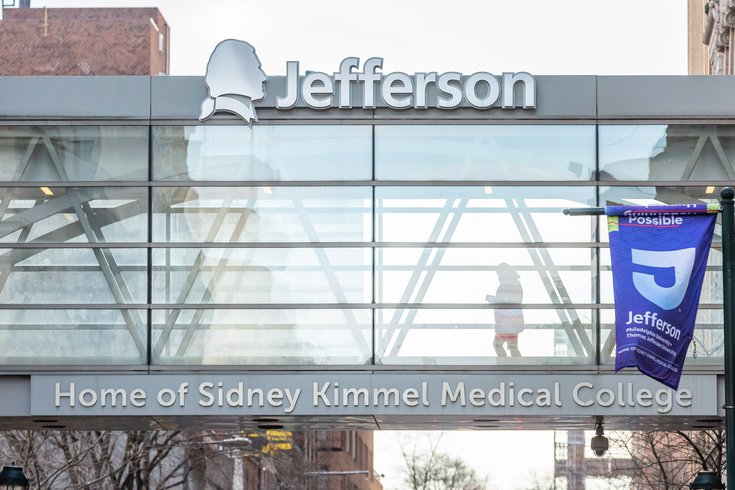
March 29, 2020
 Thom Carroll/PhillyVoice
Thom Carroll/PhillyVoice
Cancer patients are at increased risk of developing coronavirus-related complications. Hospitals are taking various precautions to prevent infection and have implemented guidelines for providing treatment during the COVID-19 pandemic.
The World Health Organization has officially declared the spread of COVID-19, the disease caused by the novel coronavirus, a pandemic. Now detected in more than 100 countries, this novel respiratory illness was first identified in December 2019. It likely spreads from person-to-person through respiratory droplets that are produced when an infected person coughs or sneezes. Symptoms can range from mild to severe and can include cough, fever and shortness of breath.
COVID-19 cases have been confirmed throughout the United States, including in the Delaware Valley. Local, state and federal authorities and other organizations have been taking significant steps to reduce the risk for further transmission, such as closing schools and canceling large social events.
Hospitals and health systems nationwide are considering the impact COVID-19 may have on the timing and delivery of care, and it is critical that we pay particular attention to the needs of our more vulnerable patients, which include people with cancer. While this continues to be a rapidly evolving situation, cancer patients require special consideration.
Based on what experts have seen so far, it appears that older adults, people with chronic health conditions like diabetes, heart disease and lung disease, and those with weakened immune systems are more likely to experience serious complications from COVID-19 infection. This includes people who have been diagnosed with cancer, especially bone marrow transplant patients and those undergoing active treatment.
At the Sidney Kimmel Cancer Center – Jefferson Health, which is part of a large academic health system with 14 hospitals in two states, we follow system-wide guidance to limit patient and employee exposure to COVID-19. These guidelines, which are similar to other health care organizations, include expanded measures for exposure control, travel restrictions, patient and caregiver education and remote work options.
In alignment with the overall efforts of Jefferson Health, further protective procedures to address the unique needs of cancer patients have been implemented. My colleague, Dr. Neal Flomenberg, a bone marrow transplant expert and deputy director of SKCC, has been leading the cancer-focused efforts in collaboration with a number of other key experts including Jefferson's infectious disease team, as well as leaders from Fox Chase Cancer Center.
Additionally, managing a pandemic is an ongoing, global effort. As president-elect of the Association of American Cancer Institutes, I have been working closely with my colleagues from leading cancer research centers throughout North America to launch a platform for our members to share experiences and best practices for delivering cancer care to patients in a rapidly evolving situation.
Here are some things to keep in mind based on the cancer-specific contain and control measures that we have developed at SKCC:
• The goal for cancer patients who are undergoing active treatment is to remain on the intended treatment schedule as close as possible. Long delays or interruptions in treatment could significantly affect outcomes for patients, so you need to balance your risks. Unless you are experiencing COVID-19 symptoms, you can keep your scheduled appointment.
• If you do have symptoms of a possible respiratory infection, limit visits to the cancer center. Before coming into an appointment, call ahead and let your health care team know if you are exhibiting symptoms like fever, cough, or shortness of breath, you have recently been to an area known to have an outbreak, or if you have been in contact with someone who has COVID-19.
• Schedule appointments during off-peak hours if possible in order to limit your exposure to others. The chemotherapy infusion center at SKCC is open on the weekends and offers later hours during the week and it is less crowded during these times.
• Take advantage of telehealth. Cancer patients seeking a telehealth visit can call 1-800-JEFFNOW.
• Note visitation policies. Most hospitals and cancer centers have made modifications to these policies, like allowing fewer visitors per patient, and prohibiting visitors who are exhibiting certain symptoms or have recently traveled to an area facing an outbreak.
• Bone marrow transplant patients and donors will likely need to follow additional precautions.
There is currently no vaccine available to prevent COVID-19. The WHO and U.S. Centers for Disease Control have outlined the following steps that everyone should follow to prevent themselves and others from getting sick:
• Wash your hands frequently with soap and water for at least 20 seconds
• If you cannot wash your hands with soap and water, use an alcohol-based hand sanitizer
• Avoid touching your face
• Cover your mouth and nose with a tissue when you cough or sneeze, or use your elbow, and immediately throw away the tissue and wash your hands or use hand sanitizer
• Clean and disinfect frequently touched surfaces including phones, keyboards, doorknobs and counters with a household disinfectant
• Stay home if you feel ill
• Avoid shaking hands with others
Additionally, to remain up-to-date on the latest information, make sure to seek out reliable sources such as:
• Philadelphia Department of Health
• Pennsylvania Department of Health
• New Jersey Department of Health
Karen E. Knudsen, Ph.D., enterprise director at the Sidney Kimmel Cancer Center – Jefferson Health, oversees cancer care and cancer research at all SKCC sites in the Greater Philadelphia region. She writes occasionally on topics related to cancer.